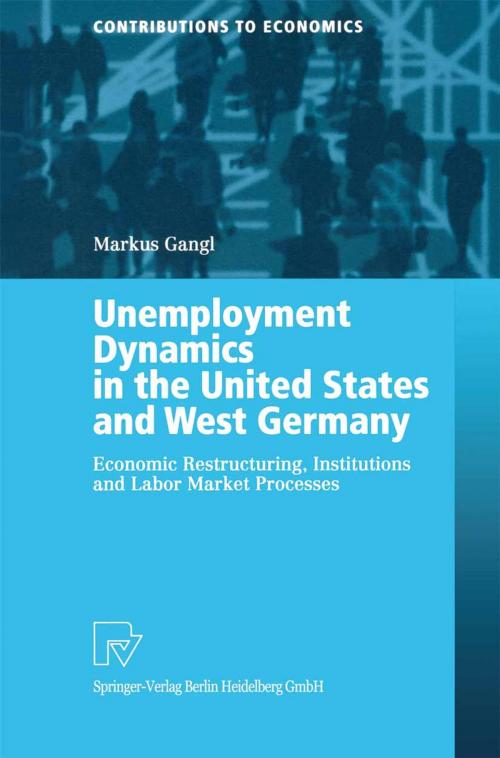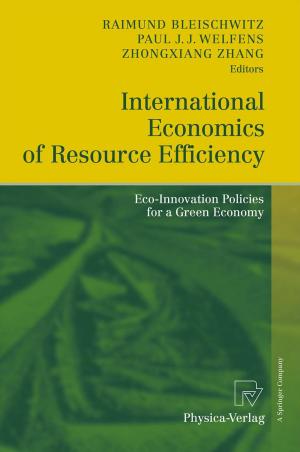Unemployment Dynamics in the United States and West Germany
Economic Restructuring, Institutions and Labor Market Processes
Business & Finance, Career Planning & Job Hunting, Labor, Nonfiction, Social & Cultural Studies, Social Science, Sociology| Author: | Markus Gangl | ISBN: | 9783642573347 |
| Publisher: | Physica-Verlag HD | Publication: | December 6, 2012 |
| Imprint: | Physica | Language: | English |
| Author: | Markus Gangl |
| ISBN: | 9783642573347 |
| Publisher: | Physica-Verlag HD |
| Publication: | December 6, 2012 |
| Imprint: | Physica |
| Language: | English |
In writing this book, I increasingly became aware of the extent to which much of the finest social science research has been devoted to the issue of unemployment. Unemployment rightly is a key issue in the social sciences for search of social and political answers to the economic, social and psychological distress caused by un certainty and macroeconomic change. I was glad to find my own worries shared by eminent and respected scholars: George Akerlof once confessed to pursue the study of unemployment ultimately because of his father's distress from fear of un employment, and Wout Ultee started research on unemployment from the consid eration that parents' talk about unemployment risks should not come to dominate marriage parties or other family occasions. The problem of unemployment is thus hardly confmed to actual loss of income, but one where economic insecurity be gins to undermine the very fabric of society. In consequence, to combat unem ployment should indeed be a foremost issue in societies striving for freedom and justice for their citizenry, yet to succeed obviously requires an understanding of the underlying economic realities. If this study could contribute to this endeavor, all the time spent in writing would seem well spent indeed. Against the significant body of existing social science research on unemploy ment, it seems appropriate to be clear about the scope and limitations of the cur rent study, however.
In writing this book, I increasingly became aware of the extent to which much of the finest social science research has been devoted to the issue of unemployment. Unemployment rightly is a key issue in the social sciences for search of social and political answers to the economic, social and psychological distress caused by un certainty and macroeconomic change. I was glad to find my own worries shared by eminent and respected scholars: George Akerlof once confessed to pursue the study of unemployment ultimately because of his father's distress from fear of un employment, and Wout Ultee started research on unemployment from the consid eration that parents' talk about unemployment risks should not come to dominate marriage parties or other family occasions. The problem of unemployment is thus hardly confmed to actual loss of income, but one where economic insecurity be gins to undermine the very fabric of society. In consequence, to combat unem ployment should indeed be a foremost issue in societies striving for freedom and justice for their citizenry, yet to succeed obviously requires an understanding of the underlying economic realities. If this study could contribute to this endeavor, all the time spent in writing would seem well spent indeed. Against the significant body of existing social science research on unemploy ment, it seems appropriate to be clear about the scope and limitations of the cur rent study, however.















